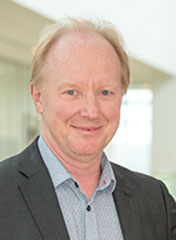ANAT2341 Lab 1
| Embryology - 19 Apr 2024 |
|---|
| Google Translate - select your language from the list shown below (this will open a new external page) |
|
العربية | català | 中文 | 中國傳統的 | français | Deutsche | עִברִית | हिंदी | bahasa Indonesia | italiano | 日本語 | 한국어 | မြန်မာ | Pilipino | Polskie | português | ਪੰਜਾਬੀ ਦੇ | Română | русский | Español | Swahili | Svensk | ไทย | Türkçe | اردو | ייִדיש | Tiếng Việt These external translations are automated and may not be accurate. (More? About Translations) |
Embryology Labs Introduction
In all embryology labs, students will first be tested on their comprehension of lecture and online content of the previous week in a 10-15 minute MCQ quiz.
Some labs will host a number of guest lecturers who use embryology in their professions relevant to recent lecture and online content, and in two of the labs we will study embryo material using microscopy and we will complete worksheets. Guest lectures and embryo labs will take about 1-1.5 hour to complete.
The remainder of the lab time you will be able to work on your group projects, which you will present in the last lab of the course.
1. QUIZ
In all embryology labs, students will first be tested on their comprehension of lecture and online content of the previous week in a 10-15 minute MCQ quiz.
2. Guest Lecturer - Doctor Steven Fleming

Doctor Steven Fleming |
Fertility and IVF (in vitro fertilization) Specialist
Previously, the Scientific Director of Westmead Fertility Centre at Westmead Hospital and Senior Lecturer in Obstetrics and Gynaecology, he now holds an honorary position at the University of Sydney. He is an author and editor of several books and textbooks on IVF units [1], embryology [2] and micromanipulation [3].
Lecture slides: File:UNSW presentation S.Fleming 2017.pdf |
3. Student Group Projects
Science Student Projects | test page
Topic - Identify a specific organ or tissue in the adult human body and provide an overview of its developmental process.
Consider the following topic sub-headings:
- developmental origin
- developmental timeline
- key discoveries
- developmental signaling processes
- identify review and research articles
- it is important to discriminate between "reviews" and "research" articles in your project.
- current research
- animal models
- abnormal development
- future questions
| 2017 Project Groups | |||||
|---|---|---|---|---|---|
| Group 1 | Group 2 | Group 3 | Group 4 | Group 5 | Group 6 |
| Mark Hill - Lab 1 page | |||||